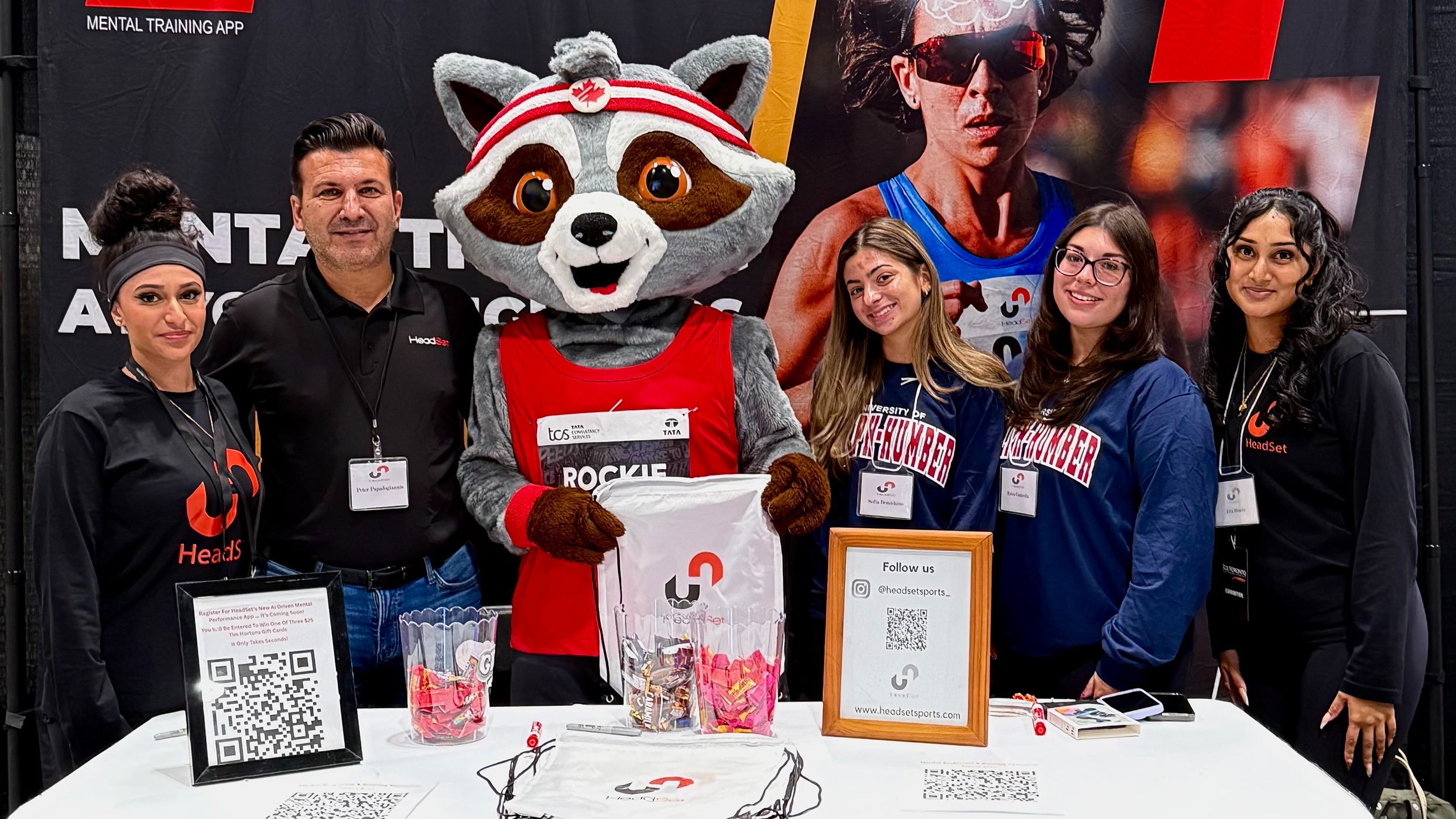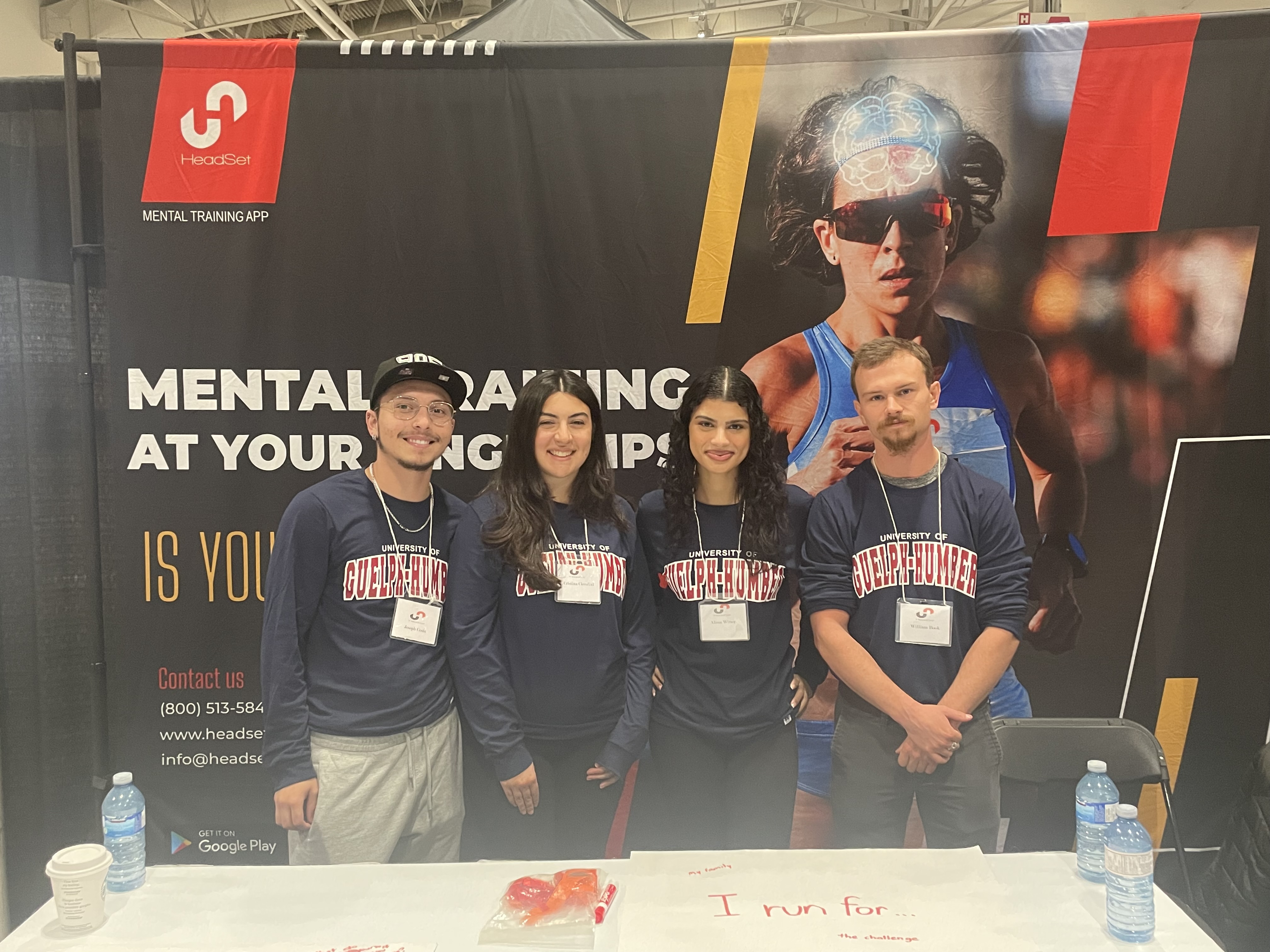10 students head to the Toronto Waterfront Marathon Expo with instructor Peter Papadogiannis on an educational field trip

When it comes to being an athlete or partaking in a major physical feat like running a marathon, reaching new levels of success often boils down to mind over matter.
In a Psychology course that Peter Papadogiannis teaches at the University of Guelph-Humber (U of GH), PSYC*2180 Psychology of Exercise, students learn about the intrapersonal and interpersonal needs of people in exercise and physical fitness. The concepts explored in this course were vividly brought to life on a field trip to the Toronto Waterfront Marathon Expo in late October.
On the field trip, students listened to the needs of marathon runners firsthand, applying the theory they learned in the lecture hall to real life – experiential learning. They observed professionals giving advice to the runners and even engaged with the runners who approached their booth. As a seasoned professional helping runners at Toronto marathons with their mental skills for two decades, Papadogiannis wanted students to gain firsthand experience providing athletes with strategies to help them run the best race possible for themselves.
“It was pretty exhilarating,” Psychology student Cristina Ciccolini said, who loved the expo experience. The Toronto Waterfront Marathon Expo (Oct. 18-19) is an event for runners that coincides with the Toronto Waterfront Marathon, which took place on Oct. 19.
Papadogiannis said that some of the most prominent areas they prepared runners for during the event were: working through worry and doubt, setting realistic goals/realistic expectations, working on self-talk and building confidence, and learning to sharpen resilience to overcome fatigue.
Furthermore, Ciccolini said she had compelling conversations with the runners at the expo. She explained that runners would discuss their feelings about completing the marathon, address anxiety, and share excitement. For her, she learned the value of allowing others to open up and build true connection through conversing about mental health and sport. Ciccolini felt a sense of community that she compared to the one cultivated at Guelph-Humber.
“People want to talk about what they're going through… It almost reminded me of the unit [we’ve built] at Guelph-Humber, where we're smaller compared to other universities. But there's that sense of community that we're all in this together, and people want to share what they're going through, and work as a team,” she said.
Second-year Psychology student Joseph Costa was also on the field trip. At first, he shared that he felt a little nervous about talking to the runners, but observing professionals in action at the booth (who worked alongside the students) gave him a confidence boost before he engaged in his own discussions with athletes. Some conversations even left him feeling inspired, and he loved the human interaction element of the field trip.
Costa added that he appreciated observing the ways people from various cultures approach running. During the expo, Costa and Ciccolini met a Ukrainian runner who told them he wasn’t just running for a personal goal; he was running for his country.
“It was great to see Peter's theories in real life, in live action. We've had lessons on motivational interviews and self-efficacy. A theory is one thing, but we were able to use the techniques from his lectures with the motivational interviews and we tie that in with self-efficacy,” Costa said of the concepts he learned in class being applied in the real world. It elevated his educational experience.
And as for Papadogiannis, being the course instructor who facilitated this opportunity was also rewarding because he enjoys seeing his students jump outside of their comfort zones. He said, “It is helpful to learn from instructors and textbooks in a classroom environment, but for them to get the experience and to see new experiences shaping the way they think is a wonderful feeling.”
To explore the integrated, applied approach the University of Guelph-Humber Psychology program takes in connecting theory to practice, click here.


